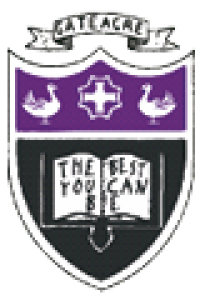Our Intent, Implementation & Impact
Intent: Our purpose and ambition
“One language sets you on a corridor for life. Two languages open every door along the way.” Frank Smith.
The intent of the MFL department is that all our language learners develop into confident and articulate “world citizens” who consider themselves a part of a multicultural and mutually respectful society. We seek to ensure that all our students acquire the educational and cultural capital to which all children are entitled. It is our intent to ensure that our curriculum is challenging and inspiring for all students so as to push them academically and we aim to ensure that teaching and learning is rooted in the science of learning. Finally, we want our pupils to have a love of languages and culture and make sure they realise the endless possibilities and opportunities that having a second (or third, or fourth!) language can bring.
Implementation: Design, Pedagogy and Assessment
Sequencing
The department has put thought and consideration into the order that topics (and lessons within each topic) are taught within each key stage. Knowledge is delivered and accumulated in a logical, cumulative progression.
Building Blocks
Key vocabulary and recurring grammatical points are identified within each curriculum and built upon.
TEEP
All lessons are delivered using the TEEP cycle and the underpinning elements of good instruction. The latest research and principles that form part of the science of learning are bolted on to this model.
Retrieval Practice
Students are given the opportunity to revisit content. Interleaving is used. Retrieval practice is encouraged through progress quizzes and low stakes quizzes and knowledge organisers also assist students.
Differentiation & Challenge
All students are challenged in each and every lesson. Differentiation takes place through the use of sentence builders and knowledge organisers and difficult concepts are broken down, scaffolded and modelled.
Assessment & Feedback
Assessment is clearly focused and varies depending on purpose. Assessments are planned to ensure high validity and reliability. They feed back into teaching where appropriate. Feedback is focused.
Literacy & Numeracy
There is a clear focus on learning new concepts. Disciplinary literacy techniques are used to explicitly develop students tier one and tier two vocabulary. Opportunities to develop numeracy are taken where appropriate.
Cultural Capital and SMSC
Opportunities are planned for within all schemes of work for students to advance their cultural and social capital and develop as individuals on a spiritual and moral level. This is explicit to students.
Linking Curriculum to Careers
Where possible, we aim to provide opportunities for pupils to understand how having a language can impact your future career choices.
IMPACT: Attainment, Progress, Knowledge, Skills and Destinations
The impact of our curriculum will be assessed each year using the different types of data available to us. This data will include exams results analysis, examiners reports, emerging research, the use of the MERA cycle, student voice and staff voice. We also seek to collaborate with colleagues from different centres and keep up to date with the latest studies and contemporary events linked to our subjects. The acquisition of knowledge should be modelled for students by staff.

